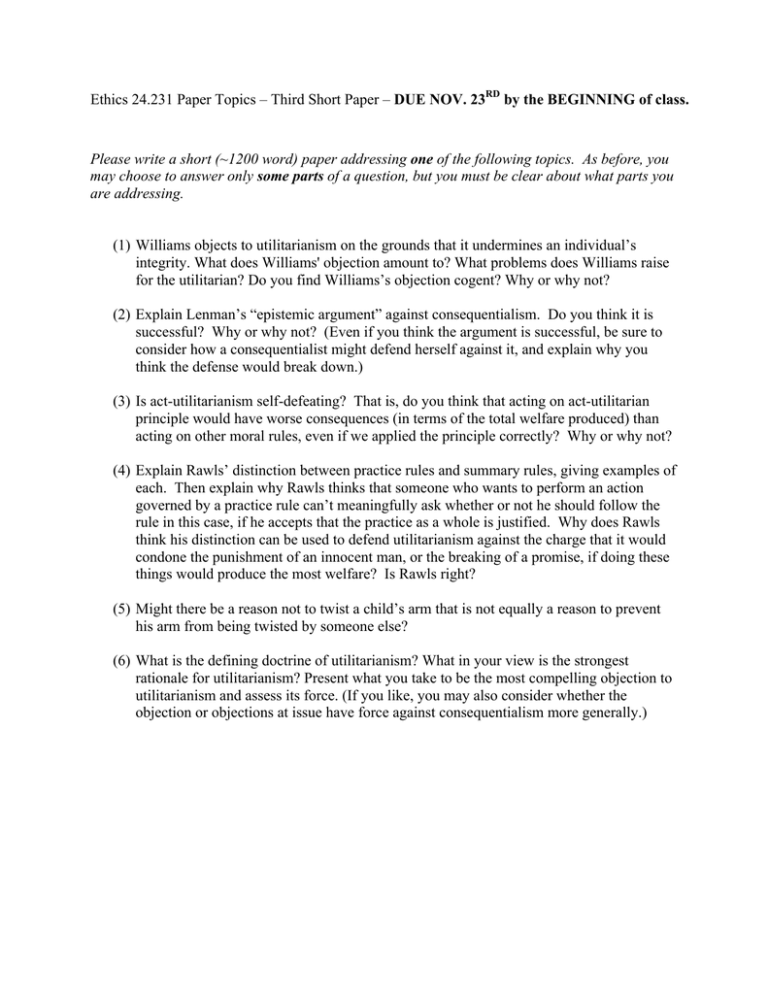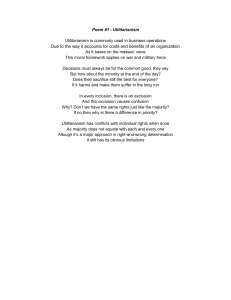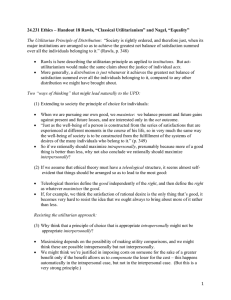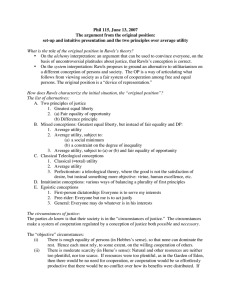DUE NOV. 23 by the BEGINNING of class.
advertisement

Ethics 24.231 Paper Topics – Third Short Paper – DUE NOV. 23RD by the BEGINNING of class. Please write a short (~1200 word) paper addressing one of the following topics. As before, you may choose to answer only some parts of a question, but you must be clear about what parts you are addressing. (1) Williams objects to utilitarianism on the grounds that it undermines an individual’s integrity. What does Williams' objection amount to? What problems does Williams raise for the utilitarian? Do you find Williams’s objection cogent? Why or why not? (2) Explain Lenman’s “epistemic argument” against consequentialism. Do you think it is successful? Why or why not? (Even if you think the argument is successful, be sure to consider how a consequentialist might defend herself against it, and explain why you think the defense would break down.) (3) Is act-utilitarianism self-defeating? That is, do you think that acting on act-utilitarian principle would have worse consequences (in terms of the total welfare produced) than acting on other moral rules, even if we applied the principle correctly? Why or why not? (4) Explain Rawls’ distinction between practice rules and summary rules, giving examples of each. Then explain why Rawls thinks that someone who wants to perform an action governed by a practice rule can’t meaningfully ask whether or not he should follow the rule in this case, if he accepts that the practice as a whole is justified. Why does Rawls think his distinction can be used to defend utilitarianism against the charge that it would condone the punishment of an innocent man, or the breaking of a promise, if doing these things would produce the most welfare? Is Rawls right? (5) Might there be a reason not to twist a child’s arm that is not equally a reason to prevent his arm from being twisted by someone else? (6) What is the defining doctrine of utilitarianism? What in your view is the strongest rationale for utilitarianism? Present what you take to be the most compelling objection to utilitarianism and assess its force. (If you like, you may also consider whether the objection or objections at issue have force against consequentialism more generally.) MIT OpenCourseWare http://ocw.mit.edu 24.231 Ethics Fall 2009 For information about citing these materials or our Terms of Use, visit: http://ocw.mit.edu/terms.



